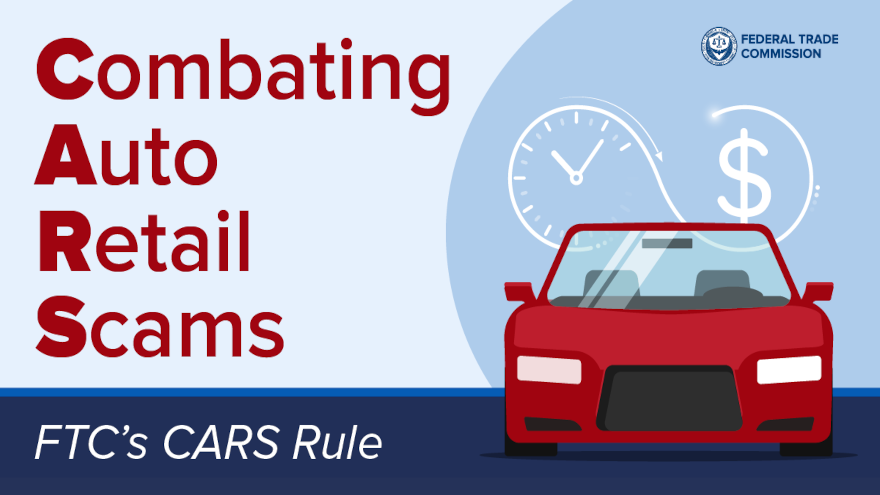Automotive Risk Management Partners tries to see potential positives from CARS Rule

Image courtesy of the Federal Trade Commission.
By subscribing, you agree to receive communications from Auto Remarketing and our partners in accordance with our Privacy Policy. We may share your information with select partners and sponsors who may contact you about their products and services. You may unsubscribe at any time.
Oral arguments in the legal challenge to the Combating Auto Retail Scams (CARS) Rule were set to begin this week in New Orleans. Attorneys for the Federal Trade Commission, the National Automobile Dealers Association and the Texas Automobile Dealers Association were scheduled to appear before the U.S. Court of Appeals for the Fifth Circuit.
Compliance expert Terry Dortch, founder and CEO of Automotive Risk Management Partners, expressed cautious optimism about the potential developments. Dortch believes the rule offers an opportunity to enhance consumer protections but emphasizes this should be done without imposing additional, redundant layers of compliance on an already well-regulated dealership industry.
“In principle, I support the FTC’s effort to ensure robust consumer protection. It’s important that consumers feel confident when purchasing or leasing a vehicle,” said Dortch, who created a Gramm-Leach-Bliley Act (GLBA) auditing process for dealership sales and finance centers.
“However, as the National Automotive Dealers Association has pointed out, dealerships are already working under extensive regulations that provide many of the protections the FTC wants to strengthen,” Dortch continued in a news release.
Dortch pointed out that existing regulations, such as the GLBA Safeguards Rule, the Truth in Lending Act, and the UDAAP (Unfair, Deceptive, or Abusive Acts and Practices) clause of the Dodd-Frank Act, already provide a robust framework for consumer protection.
“Auto dealerships are committed to compliance, and there are already clear expectations and systems in place to safeguard consumers. Through services like those provided by Automotive Risk Management Partners, our role is to ensure dealerships have the right tools and training to maintain these high standards,” Dortch said.
Subscribe to Auto Remarketing to stay informed and stay ahead.
By subscribing, you agree to receive communications from Auto Remarketing and our partners in accordance with our Privacy Policy. We may share your information with select partners and sponsors who may contact you about their products and services. You may unsubscribe at any time.
Dortch reiterated the Consumer Financial Protection Bureau (CFPB) requires dealerships to implement a compliance management system (CMS), which makes sure federal and state regulations are fully integrated into business operations.
Dortch’s company can play a key role in helping dealerships establish and maintain these systems.
A CMS outlines how a dealership can:
—Establish and communicate compliance responsibilities
—Incorporate compliance responsibilities into business processes
—Regularly review operations to ensure compliance is met
—Take corrective action when necessary.
“Dealerships are taking compliance seriously, and those implementing proper safeguards can thrive. We’ve seen the success of compliance systems across the industry, especially when backed by comprehensive employee training and regular audits,” Dortch added.
Automotive Risk Management Partners supports these efforts with a full suite of compliance services, including training, physical audits, and cybersecurity solutions.
To further instill confidence, the company provides a $1 million insurance policy backed by an A+-rated insurer to reinforce its commitment to the dealerships it serves.
“As we move forward with the CARS Rule discussions, I believe it’s crucial to remember that we can improve consumer protections without overcomplicating the process for dealerships. There’s a balance to be struck, and with over 20 years of compliance expertise, we’re here to ensure both consumers and dealerships succeed,” Dortch said.
The firm’s latest whitepaper, “How a Compliance Security Firm Should Protect You,” can be downloaded here.


